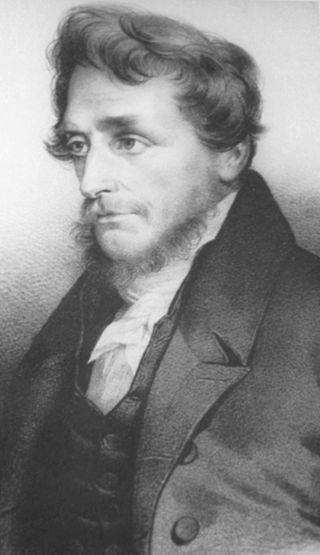Landschlacht, Switzerland, 19 December 2016
Now, Belgians love a good celebration, but a big night in the Belgian boozers often leads to mornings of regret and grim reflection.
Being the chaste daughter of an English curate, nights in a bar were probably not part of Charlotte Bronte´s story, but her unrequited love for a married professor must have lead her to mornings of remorse and silent rage against the fates denying her heart´s desire.
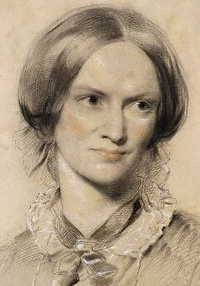
It has been suggested by many a Bronte biographer that during Charlotte´s second sojourn in Brussels that she was unhappy and homesick, but was she also lonely?
Chances are…probably yes.
For who had she to chum around with?
Her sister Emily, who had been with her in Brussels for the first nine months of 1842, had remained at Haworth.
Although we can be fairly certain that Charlotte maintained a regular amount of correspondence with Haworth and English friends, her biographers suggest that she had no peers to confide in, she had no great affection for the girls under her charge at the Héger boarding school, nor did she venture out into Bruxellois society, Charlotte being blessed with neither great beauty nor great wealth.
In 1843 Brussels, Charlotte would probably known of, but never have spoken to, the élite of the Belgian capital.
Leopold I (1790 – 1865), the first King of the Belgians, had been on the throne since 1831, though Belgian independence went unrecognised until 1839.

Joachim Lelewel (1786 – 1861), Polish historian, biographer, polyglot and politician, was living in exile in Brussels (1833 – 1861) during the year Charlotte was teaching again in the Héger boarding school, but he earned a scanty livelihood by his writings.
There is no record showing that Charlotte and Joachim ever met.
And when not silently pining for Professor Héger or teaching young ladies English, Charlotte would have been distracted by problems back home in Haworth.
Charlotte´s father Patrick Bronte had lost his sight (restored in 1846), while her brother Branwell had fallen into a rapid decline of drama, drunkenness and opiate delirium.

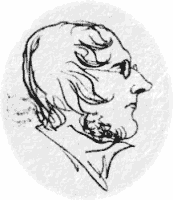
One hundred and fifty three years later…
Of course many historic events had happened between Charlotte´s time in Brussels (January 1843 – January 1844) and my own time there (5 – 12 November 1996).
Many people had lived and died, come and gone in Brussels:
The aforementioned Leopold I and Joachim Lelewel were long dead, as were the entire Bronte family and the operators of the Héger boarding school.
Brussels has seen the likes of:
- French politician/philosopher Pierre-Joseph Proudhon (1809 – 1865), the world´s first self-declared anarchist, in exile here (1858 – 1862).
- Dutch writer Eduard Douwes Dekker (aka Multatuli – Latin: I have suffered much.) completed his masterpiece Max Havelaar here in 1859.
- French writer Victor Hugo (1802 – 1885) completed Les Miserables here in 1851.
- French poets Paul Verlaine (1844 – 1896) and Arthur Rimbaud (1854 – 1891)
- French sculptor Auguste Rodin (1840 – 1917)
- French poets Charles Baudelaire (1821 – 1867) and Louis Blanc (1811 – 1882)
- French General Georges Boulanger (1837 – 1891) and Argentinian General / 1st Peruvian President José de San Martin (1824 – 1830)
- French writer Alexandre Dumas Sr. (1802 -1870)
- German philosophers Karl Marx (1818 – 1883) and Friedrich Engels (1820 – 1895) wrote The Communist Manifesto here.
- Dutch painter Vincent van Gogh (1853 – 1890)
- George Washington (1871 – 1946), the inventor and first commercial producer of instant coffee, grew up in Brussels.
- Nobel Prize winners Jules Bordet (1870 – 1961)(Medicine, 1919), Ilye Prigogine (1917 – 2003)(Chemistry, 1977), Francois Englert (Physics, 2013) and Henri La Fontaine (1854 – 1943)(Peace, 1913)
- Painters Pieter Brueghel the Elder (1525 – 1569) and René Magritte (1898 – 1967)
- Desiderius Erasmus (1466 – 1536)
- Graphic designer M.C. Escher (1898 – 1972)
- Architects Victor Horta (1861 – 1947) and Jan van Ruysbroeck (aka Jan van der Berghe) would transform the Brussels urban landscape.
- Novelist Emma Orczy (1865 – 1947) grew up here.
- Albanian dictator Enver Hoxha (1908 – 1985) worked as a secretary at the Albanian consulate (1934 – 1936).
- Rockers Ian McCulloch (Echo and the Bunnymen), Plastic Bertrand, Brain Molko (Placebo) and Vini Reilly (The Duratti Column / Morrissey)
- Régine Zylberberg, pioneer of the modern nightclub
- Writer Hendrik Conscience (1812 – 1883)
- Mathematician Jacques Tits (born 1930)
- Andreas Vesalius (1514 – 1564), author of the first complete textbook on human anatomy, On the Workings of the Human Body
- Actors Audrey Hepburn (1929 – 1993) and Jean-Claude Van Damme (born 1960)(“the muscles from Brussels”)
- Chansonnier Jacques Brel (1933 – 1978)
- Just to name a few…these would “pitch their tents” within Brussels.
1993 was a dramatic year in respect to the Belgian monarchy:
The 5th King of the Belgians, Baudouin, died on 31 July.

Within hours the Royal Palace gates and enclosure were covered with flowers that people brought spontaneously.
Baudouin had become King of the Belgians when his father Leopold III, surrounded by controversy, abdicated the throne in favour of his son.
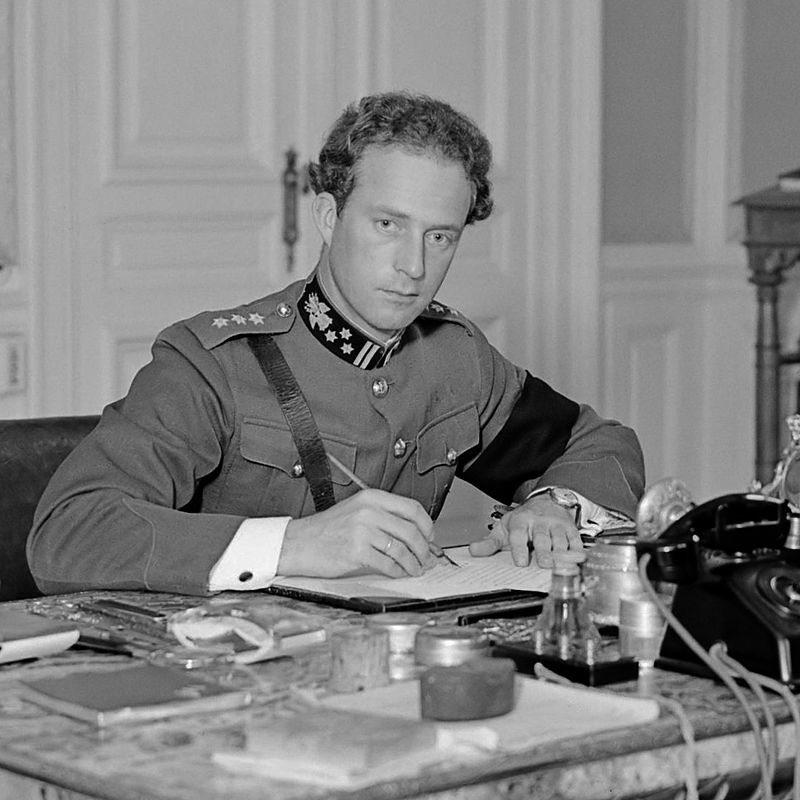
(Leopold III was unpopular because he married an English-born Belgian commoner after Baudoin´s mother had been killed in a car crash, and because he had surrendered Belgium to the Nazis when they invaded in 1940.
Many Belgians questioned Leopold´s loyalties and though he was exonerated of treason after WW2 it was felt by many that he no longer deserved the throne.)
The King and Queen had no children.
During Baudouin´s reign the Belgian Congo became independent.

At the last ceremonial inspection of the Force Publique, the royal sabre of the King was stolen during the parade.
The famous picture travelled the world newspapers.
The next day the King attended the official reception.
His speech received a blistering public response from the Congolese Prime Minister Patrice Lumumba.

This duality of humiliation of the King became the symbol of the independence of the Congo.

In 1990 Baudouin refused to sign into law a bill permitting abortion.
Due to his religious convictions…
(As well, all of the Queen´s five pregnancies had ended in premature miscarriages.)
…Baudouin asked the Belgian government to declare him temporarily unable to reign so that he could avoid signing the measure.
The Belgian government compiled with his request, because, according to the provisions of the Belgian constitution, in the event that the King is temporarily unable to reign, the government fulfills the role of the Head of State.
All members of the government signed the bill on 4 April 1990.
The next day the government declared that Badouin was capable of reigning again.
His successor Albert II assumed the throne on 9 August and would abdicate the throne in favour of his son Philippe in 2013.

Brussels, Belgium, 7 November 1996
“Zoé”, a former girlfriend (of the year previous) with whom I “pitched my tent” during my Brussels stay, had been one of the 500,000 people who came to pay their respects and to view Baudouin´s body lying in state at the Royal Palace, waiting in line for hours in sweltering heat to see their King one last time.

When I visited Brussels in November 1996, Belgium still felt like a country still in deep mourning.
The souvenir shops were still selling postcards of Baudoin as well as postcards of Albert II.
(Ironically I would see another spontaneous bringing of flowers in memorium when the death of Diana, Princess of Wales was announced while I was back in Brussels the following year.)

Zoé, like Charlotte Bronte, also lacked spectacular wealth and beauty.
So they also shared a loneliness they were both desperate to alleviate.
Your humble blogger too lacked great wealth or looks…
(That hasn´t changed!)
…but I had been accustomed to a life of solitude since I had begun travelling five years previously (hitching around North America, walking in Canada), so as much as I too had my moments of isolated loneliness this isolation no longer frightened me.
Zoé was terrified of isolation.
Escaping from Zoé´s side was more difficult than accomplishing any one of the Twelve Labours of Heracles!
Zoé had to have noise always about her and listened to the radio or watched TV constantly.
At the time of her life I visited her, Zoé was very découragé with everything: her apartment, her job prospects, her family…
During our year apart I had changed.
I was no longer the last year´s man she had known.
Thursday 7 November was a dark and dismal rainy day in Brussels so we spent most of the day in her apartment.
The apartment, belonging to her father, was by no means a cure for the blues…
It was dirty, dingy, infested by slugs(!), peeling paint, clutter and unidentifiable powerfully unpleasant odours.

Zoé would have liked to live elsewhere but without employment she was dependent upon her father´s assistance.
I did not wish to add to her financial burdens once my savings ran out and finding employment as a teacher didn´t pan out.
I met her father that day and was shocked to see the contrast between them.
“Francois”, 65, was tall (by Belgian standards), stylish, debonair, cultured, and, though I never discovered what his source of income was, able to maintain two mistresses.
Zoé´s mother was never a topic of discussion.
I felt I was in a world alien to my experience.
What kind of morality or conscience guided Francois?
What kind of woman was attracted to someone like Francois?
Had he no compassion for these women, or was that limited to the chase rather than the capture?
Were these women as desperate and hungry for affection as Zoé was?
Could Francois´ womanizing have something to do with the woman Zoé was?
I was no psychologist nor an expert in women.
Zoé had heard of open invitations to become spectators for RTL TVI Station 15´s talk show “Balle Centrale”(?) that evening.
(Perhaps today´s “De quoi je me mêle”?)
The station originated in Luxembourg but is now based in Belgium.
Zoé drove us through the driving rain to the studios to watch journalists, sports figures, singers, actresses and comedians strut their stuff.
My rusty French and the programme´s Belgian accent and vocabulary left me feeling somewhat diminished, while a comedian enraged me with his comments that there was no difference between Canada and the US!!
Zoé had already introduced me to Belgian comedy:
I particularly enjoyed Les Snuls (1989 -1983).
Their humour was mostly inspired by self-mockery and nonsense, much like the British comedy troupe Monty Python or Canada´s Royal Canadian Air Farce, and hijacking national symbols of Belgium (moules-frites, Manneken Pis, Tintin, beer, chocolate, sprouts…).
This quintet of comedy amused me, but also made me consider the similarities between Canada and Belgium.
In the 15 August 1912 Revue de Belgique, Walloon socialist politician Jules Destrée wrote his famous and notorious “Letter to the King on the separation of Wallonia and Flanders”:

“In Belgium there are Walloons and Flemings. There are no Belgians.”
There remain moments where I have wondered:
In Canada there are Anglophones and Francophones, English Canada and Québec.
Are there Canadians?

Perhaps had I not grown up Anglo in Québec I might be like 90% of Canadians who are strictly unilingual.

Above: Flag of Québec
Perhaps I might feel either Anglo or Franco.
In the merging of two into one, can the separate identity of both be maintained?
Should it be?
And then I thought of my time with Zoé since we had been reunited.
So desperate to get me into her world and hold me within…
I had not come to Europe to lose my identity, but rather to discover it by comparison.
In thinking of my identity, both personal and national, I thought much on the music of Montréal Anglo Leonard Cohen.
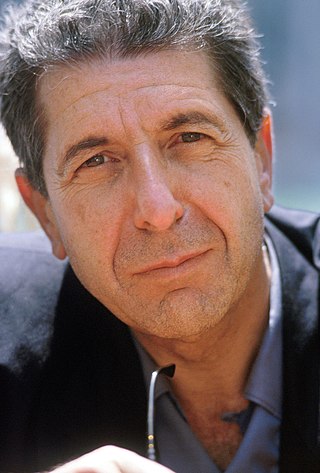
Above: Leonard Cohen, 1988
As Zoé slumbered beside me, sleep denied its comfort and I listened to the whispering rain fall outside the window.
And in the jukebox of my mind, from his lonely wooden Tower of Song, Leonard quietly and mournfully reminded me that…
“The rain falls down on the works of last year´s man…”
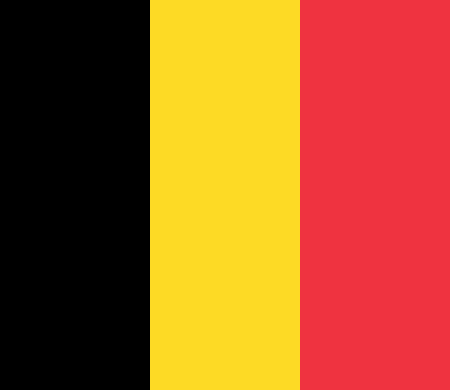
Above: The flag of Belgium
